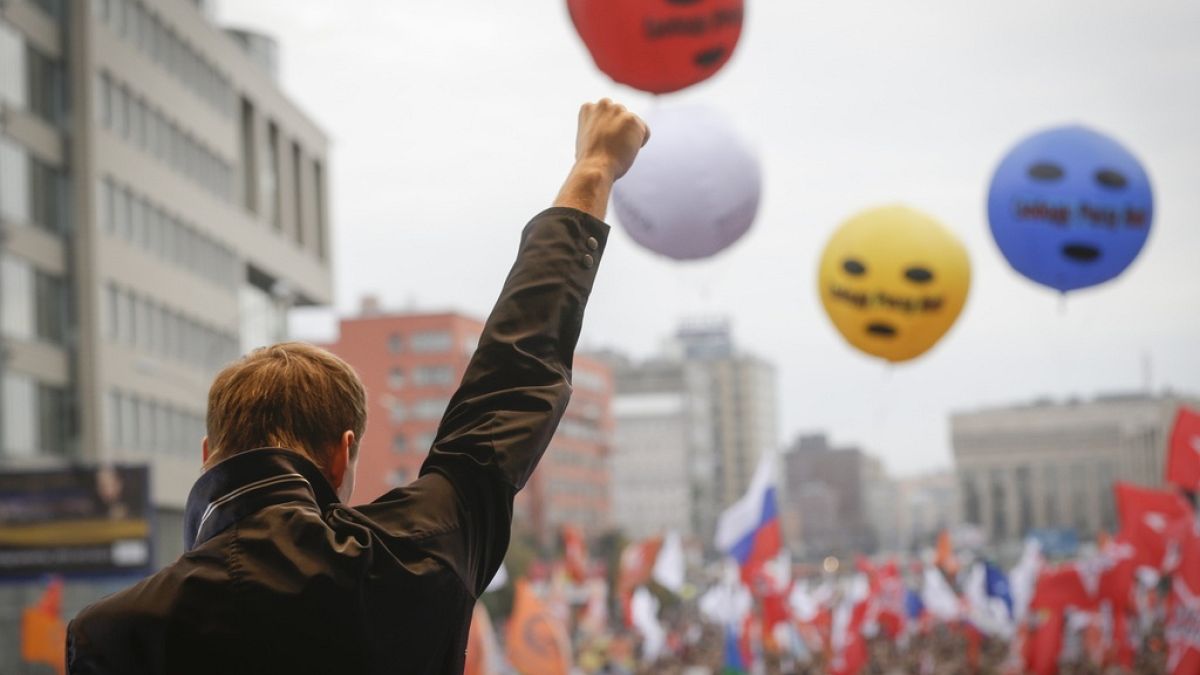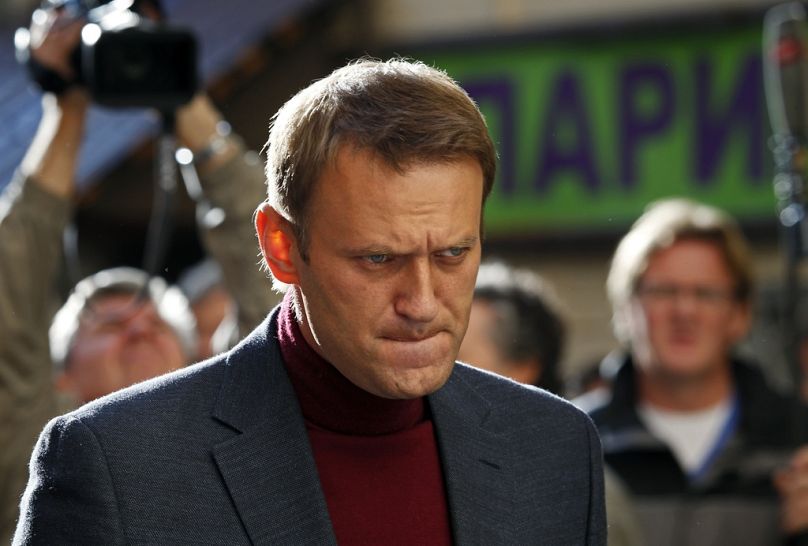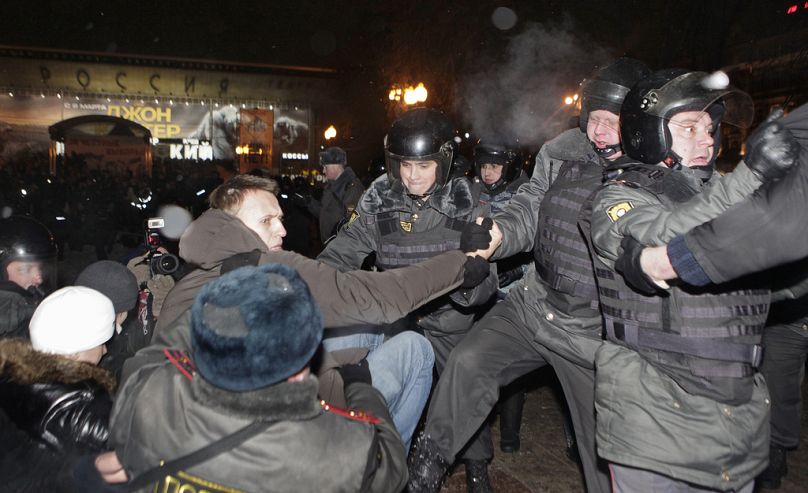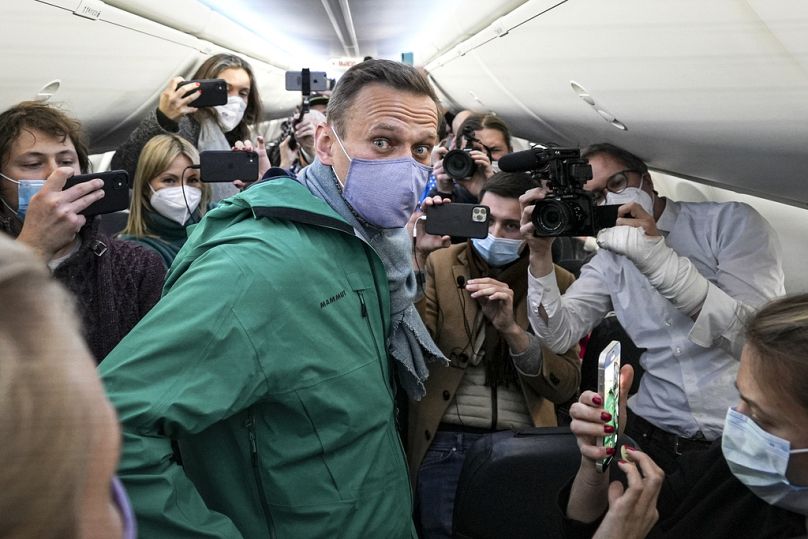Putin's staunchest opponent has died in prison. But who was Navalny? And how did the lawyer-turned-opposition leader rise to prominence?
Russian opposition figure Alexei Navalny has died in prison.
Over the past decades, the 47-year-old rose to fame as the fiercest opponent of Russian President Vladimir Putin, crusading against official corruption and staging massive anti-Kremlin protests.
In Putin's Russia, political opponents have often faded amid factional bickering or gone into exile after imprisonment.
But Navalny grew stronger and stronger, rising to the top of the opposition through grit and a keen understanding of how social media could circumvent the Kremlin's tight grip on news in Russia.
He was born in Butyn, about 40 kilometres outside Moscow. He received a law degree from the People's Friendship University in 1998 and did a fellowship at Yale in 2010.
Navalny attracted attention by focusing on corruption among Russia's elite.
One of his early moves was to buy a stake in Russian oil and gas companies to become an activist shareholder and push for transparency.
By focusing on corruption, Navalny's work appealed to Russians' widespread sense of being cheated, and it resonated more strongly than more abstract and philosophical concerns about democratic ideals and human rights.
Why was Navalny in jail?
In 2013, he was convicted of embezzlement in what he called a politically motivated prosecution and sentenced to five years in prison, but the prosecutor's office later surprisingly requested his release pending appeal.
A higher court later gave him a suspended sentence.
The day before he was sentenced, Navalny registered as a candidate for mayor of Moscow.
The opposition saw his release as the result of large protests in the capital against his sentence, but many observers attributed it to the authorities' desire to give the mayoral election a veneer of legitimacy.
Navalny came second, an impressive performance against the incumbent, who had the backing of Putin's political machine and was popular for improving the capital's infrastructure and aesthetics.
Navalny's popularity soared after another charismatic politician, Boris Nemtsov, was shot dead on a bridge near the Kremlin in 2015.
Whenever Putin spoke about Navalny, he made a point of never mentioning the activist by name, referring to him as "that person" or similar phrases, in an apparent effort to diminish his importance.
But he was not controversy-free.
Even in opposition circles, Navalny was often seen as overly nationalistic in his support for the rights of ethnic Russians.
Many have accused him of adopting an ambiguous position following Russia's illegal annexation of Crimea in 2014. Navalny repeatedly stated he didn't see a Ukrainian future for the region.
Although he condemned the means of Putin's annexation of Crimea, he avoided saying in many interviews that it should be returned to the Ukrainians.
Still, he was largely able to overcome the fallout from these statements through the power of the investigations conducted by his Anti-Corruption Fund.
Although state-controlled television channels in Russia ignored Navalny, his investigations resonated with younger Russians through YouTube videos and posts on his website and social media accounts.
His work broadened from a focus on corruption to a general critique of the political system under Putin, who has led Russia for more than two decades.
Navalny was a central galvanising figure in protests of unprecedented scale against dubious national election results and the exclusion of independent candidates.
Poisoned in Siberia
While serving a prison sentence in 2019 for his involvement in election protests, Navalny was taken to hospital with what authorities said was an allergic reaction.
Some doctors said appeared to be poisoning.
A year later, on 20 August 2020, he fell seriously ill on a flight to Moscow from the Siberian city of Tomsk, where he was organising opposition candidates.
He collapsed in the aisle returning from the toilet and the plane made an emergency landing in the city of Omsk, where he spent two days in hospital while supporters pleaded with doctors to allow him to be taken to Germany for treatment.
Once in Germany, doctors determined he had been poisoned with a strain of Novichok - similar to the nerve agent that nearly killed former Russian spy Sergei Skripal and his daughter in England in 2018, and caused the death of another woman.
Navalny was in a medically induced coma for about two weeks, then struggled to regain speech and movement for several more weeks.
Russian authorities then upped the ante, announcing that Navalny had violated the terms of a suspended sentence in one of his embezzlement convictions while in Germany, and that he would be arrested if he returned home.
But staying abroad wasn't in his nature. Navalny and his wife boarded a plane to Moscow on 17 January 2021. In just over two weeks, he was tried, convicted and sentenced to 2½ years in prison.
The events sparked massive protests that reached the furthest corners of Russia and saw more than 10,000 people arrested by police.
When Putin sent troops to invade Ukraine on 24 February 2022, Navalny strongly condemned the war in social media posts from prison and during his court appearances.
Less than a month after the war began, he was sentenced to an additional nine years for embezzlement and contempt of court in a case he and his supporters dismissed as fabricated.
Investigators immediately launched a new probe, and in August 2023 Navalny was convicted of extremism and sentenced to 19 years in prison.
After taking a walk in the prison on Friday, he felt unwell and lost consciousness, according to the Federal Penitentiary Service. An ambulance arrived to try to resuscitate him, but he died. The cause of death was said to be "under investigation".



